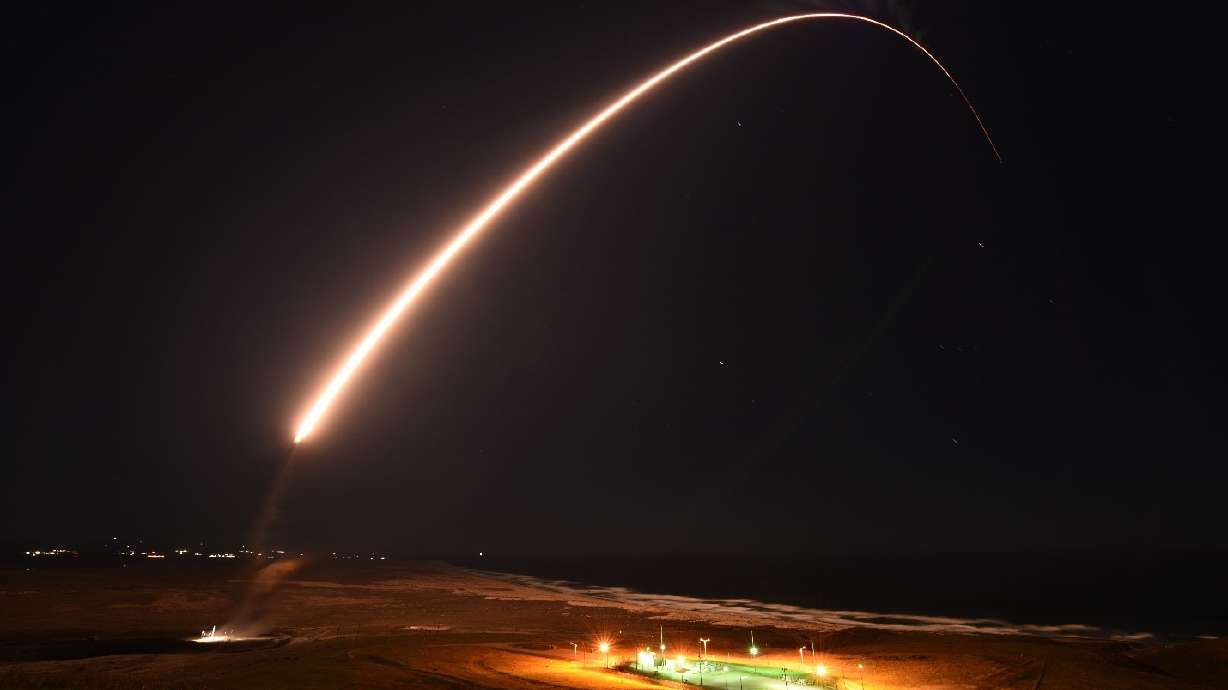Estimated read time: 2-3 minutes
This archived news story is available only for your personal, non-commercial use. Information in the story may be outdated or superseded by additional information. Reading or replaying the story in its archived form does not constitute a republication of the story.
OGDEN — Boeing announced Tuesday that it was awarded an additional $405 million contract to continue "extreme environmental testing" on nuclear weapons components at Hill Air Force Base.
The contract was first awarded in September 2017, for $154 million. In February, it was extended for another five years, making the total amount of the contract worth up to $559 million and allowing Boeing engineers to continue working at the Little Mountain Test Facility, a remote 1,000-acre area on the western shore of the Great Salt Lake. The site is owned by the Air Force and operated in partnership with defense contractors.
It was a noncompetitive contract, which can be awarded in specific cases where "only one responsible source and no other supplies or services will satisfy agency requirements," per federal regulations.
Boeing tests components of the Minuteman and Sentinel intercontinental ballistic missile projects, simulating extreme environments to better understand "radiation effects, electromagnetic effects, shock and vibration," and other environmental impacts, according to a press release.
Present-day intercontinental ballistic missiles weigh almost 80,000 pounds, have a range of 6,000 miles, and an estimated top speed 23 times faster than sound travels, according to the Air Force.
"The state-of-the-art site is designed to test functionality of the nation's current and future intercontinental ballistic missile force, nuclear modernization programs and other critical defense and deterrence capabilities in the most extreme environments," the release says.
The Air Force Nuclear Weapons Center paid out over $10 million at the time of the award, according to a Department of Defense announcement.
A spokesperson for Boeing said that the company's relationship with Hill "stems back to the origins of Minuteman."
The U.S. Air Force awarded Boeing the Minuteman ICBM program as prime contractor in 1958. Utah companies, including Thiokol of Brigham City and the Hercules Powder Company out of Magna, won contracts to work on propulsion for the missiles.
Fifty years ago, in 1974, Boeing took the lead on test support at the Little Mountain Test Facility. The company, once inextricably tied to U.S. nuclear missile programs, declined to compete for the Sentinel contract, which is replacing the Minuteman program. The $13 billion contract was awarded to Northrop Grumman in September 2020.
Boeing was selected as the prime contractor for Minuteman III guidance system support in 2023, with a $1.6 billion contract, maintaining the missiles until at least 2039.









